Historical Timeline
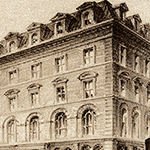 1867: THE LAW DEPARTMENT OPENS ITS DOORS
1867: THE LAW DEPARTMENT OPENS ITS DOORS
The St. Louis Law School is launched as the first Law Department of Washington University. The School of Law is housed in the Polytechnic Institute Building at Seventh & Chestnut. The date of the school’s founding earns it the subsequent distinction as the 12th oldest law school in the nation and the oldest law school west of the Mississippi. Learn more about WashULaw’s buildings here.
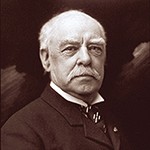 1867: HENRY HITCHCOCK NAMED DEAN
1867: HENRY HITCHCOCK NAMED DEAN
Henry Hitchcock is named the School of Law’s first dean. The Moot Court is established to provide students with training in research of and preparation for pleadings and oral arguments. Learn more about WashULaw’s inspirational deans here.
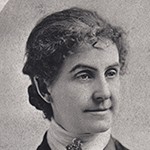 1869: LAW SCHOOL ADMITS FIRST FEMALE STUDENTS
1869: LAW SCHOOL ADMITS FIRST FEMALE STUDENTS
The School of Law admits Phoebe Couzins (pictured) and Lemma Barkeloo, the first women admitted to a chartered law school in the United States. In 1870, Barkeloo becomes the second woman admitted to the bar. Couzins is admitted to the bar in 1872 and later helps found the National Woman Suffrage Association. She also becomes the first female U.S. Marshal in 1887.
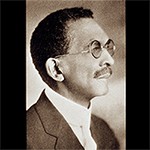 1889: FIRST AFRICAN AMERICAN STUDENT GRADUATES
1889: FIRST AFRICAN AMERICAN STUDENT GRADUATES
Walter Moran Farmer becomes the first African American to graduate from the School of Law (LLB, cum laude). He goes on to be the first African American lawyer to argue before the Supreme Court of Missouri (1893) and one of the first to argue a case (Duncan v. Missouri, 1894) before the U.S. Supreme Court.
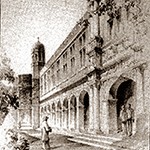 1909: LAW SCHOOL MOVES TO HILLTOP CAMPUS
1909: LAW SCHOOL MOVES TO HILLTOP CAMPUS
With income from the lease of buildings to the Louisiana Purchase Exposition Company for the 1904 World’s Fair, the university enjoys a construction boom, including the Ridgley Library Building. Chancellor David F. Houston moves the law department to the upper floor of Ridgley Hall. Learn more about WashULaw’s buildings here.
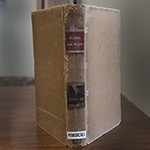 1915: THE ST. LOUIS LAW REVIEW IS FIRST PUBLISHED
1915: THE ST. LOUIS LAW REVIEW IS FIRST PUBLISHED
The St. Louis Law Review publishes its first issue. Renamed the Law Quarterly in 1936, it suspends publication in 1943 because of World War II, but resumes in 1949. The School of Law now publishes four student-run academic journals: Washington University Law Review, Washington University Journal of Law & Policy, Washington University Global Studies Law Review, and Washington University Jurisprudence Review.
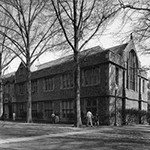 1923: LAW SCHOOL MOVES TO JANUARY HALL
1923: LAW SCHOOL MOVES TO JANUARY HALL
The School of Law moves from the Ridgley Library Building to January Hall. The building is a gift from Isabel January, who later became the wife of university benefactor Robert Brookings. The building is named in memory of her mother, Grace Vallé January. Learn more about WashULaw’s buildings here.
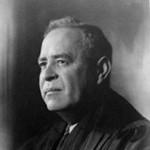 1930: WILEY BLOUNT RUTLEDGE, JR. BECOMES DEAN
1930: WILEY BLOUNT RUTLEDGE, JR. BECOMES DEAN
Wiley Blount Rutledge, Jr. serves as acting dean for one year and then as dean of the School of Law from 1931 to 1935. Rutledge later became a justice of the United States Supreme Court, where he served from 1943 to 49. The school’s Wiley Rutledge Moot Court Competition, which began in 1867, was later renamed in his honor.
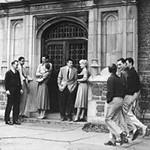 1947: ENROLLMENT BOOMS
1947: ENROLLMENT BOOMS
Enrollment at the School of Law rapidly increases from 43 students in 1943 to 270 students in 1947, due to the influx of World War II veterans.
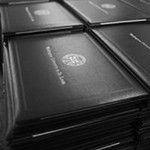 1967: LLM AND JSD DEGREES INTRODUCED
1967: LLM AND JSD DEGREES INTRODUCED
The School of Law offers its first Master of Laws (LLM) degree for students who wish to specialize in urban studies. It also begins offering the prestigious JSD degree, the equivalent of a PhD in law.
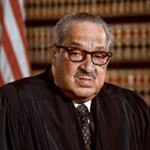 1967: SUPREME COURT JUSTICE THURGOOD MARSHALL DELIVERS LECTURE
1967: SUPREME COURT JUSTICE THURGOOD MARSHALL DELIVERS LECTURE
U.S. Supreme Court Justice Thurgood Marshall delivers the Tyrrell Williams Lecture. A civil rights activist, Marshall was the first African American justice on the Supreme Court, serving from 1967 to 1991. Throughout the years, fellow Supreme Court Justices Felix Frankfurter, William O. Douglas, William Brennan Jr., Harry A. Blackmun, Sandra Day O’Connor, Ruth Bader Ginsburg, Antonin Scalia, Sonia Sotomayor, and John Paul Stevens, as well as Chief Justices Earl Warren and John Roberts, all visit the school.
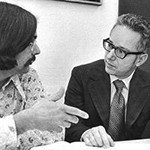 1968: URBAN LAW ANNUAL DEBUTS
1968: URBAN LAW ANNUAL DEBUTS
Professor Daniel Mandelker initiates the Urban Law Annual, focused on issues surrounding land use and zoning law, housing and redevelopment law, and local government law. The journal is renamed in 1983 as the Washington University Journal of Urban and Contemporary Law. Today, it is the Washington University Journal of Law & Policy.
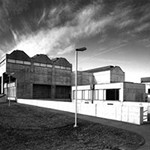 1971: LAW SCHOOL MOVES TO MUDD HALL
1971: LAW SCHOOL MOVES TO MUDD HALL
Mudd Hall, named for a $1.75 million grant from the Seeley G. Mudd Foundation of Los Angeles toward construction of the $3.5 million building, provides relief from overcrowding in January Hall. With its concrete interior and exterior, Mudd Hall’s architecture contrasts with the Collegiate Gothic style of other buildings on campus. 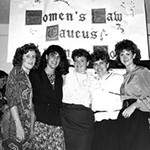 1972: WOMEN’S LAW CAUCUS CHAPTER FORMS
1972: WOMEN’S LAW CAUCUS CHAPTER FORMS
The Women’s Law Caucus is founded to emphasize development and achievements of women in the law. Through public service projects and outreach to leading female lawyers, alumnae, and academics, members build foundations for their futures in law. Today, the Women’s Law Caucus is one of the largest student-run groups at the School of Law.
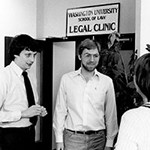 1973: CLINICAL PROGRAM BEGINS
1973: CLINICAL PROGRAM BEGINS
The School of Law launches its Clinical Education Program with the Introductory Clinic, offered in conjunction with Legal Services of Eastern Missouri. The Advanced Clinic and Judicial Clerkship Clinic are soon added. Today, the Clinical Education Program has expanded to 20 offerings. Learn more about clinical opportunities at WashULaw here.
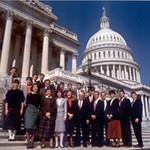 1978: CONGRESSIONAL CLINIC LAUNCHED
1978: CONGRESSIONAL CLINIC LAUNCHED
Founded as one of the first legal externship programs in Washington, D.C., the Congressional Clinic is launched. Today the Congressional & Administrative Law Externship offers full-time clinical opportunities on Capitol Hill, in federal agencies, and at Non-Governmental Organizations (NGO’s).
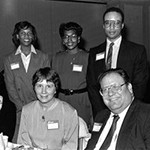 1987: FIRST SCHOLARSHIP DINNER CREATES NEW TRADITION
1987: FIRST SCHOLARSHIP DINNER CREATES NEW TRADITION
The School of Law hosts a dinner to celebrate 21 annual scholarships and 28 endowed scholarships. Today, the program offers 131 annual scholarships and 170 endowed scholarships.
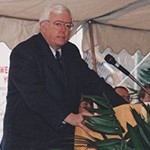 1989: LAW SCHOOL NATIONAL COUNCIL ESTABLISHED
1989: LAW SCHOOL NATIONAL COUNCIL ESTABLISHED
The School of Law forms a National Council to serve as a strategic advisory board. The original group includes 26 alumni and friends, with William Van Cleve (pictured) named as its first chair. Now the School of Law Board of Advisors, it has nearly 40 distinguished members.
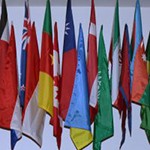 1995: MASTER OF LAWS (LLM) IN U.S. LAW INTRODUCED
1995: MASTER OF LAWS (LLM) IN U.S. LAW INTRODUCED
The School of Law begins offering the Master of Laws (LLM) in U.S. Law for foreign lawyers practicing in the global legal environment. In 1996, the LLM in Taxation is added as a specialty for U.S. lawyers. Today, Intellectual Property and Negotiation and Dispute Resolution options are also available.
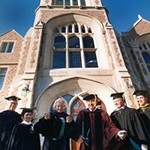 1997: ANHEUSER-BUSCH HALL OPENS
1997: ANHEUSER-BUSCH HALL OPENS
Supreme Court Justice Sandra Day O’Connor, Dean Dan Ellis and other dignitaries cut the ribbon for Anheuser-Busch Hall, which opened in 1997. To help fund the building, the School of Law raised $22 million in just over three years, exceeding the initial goal and surpassing the original timetable. Justice O’Connor also gave the keynote address at the dedication in September.
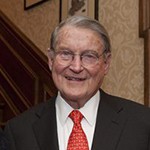 1998: PUBLIC INTEREST LECTURE SERIES DEBUTS
1998: PUBLIC INTEREST LECTURE SERIES DEBUTS
The first Public Interest Law & Policy Speakers Series (PILPSS) lecture debuts, including Louise Arbour, Leon Higginbotham, Guido Calabresi, Ralph Nader, Cass Sunstein, and William Webster, JD ’49 (pictured).
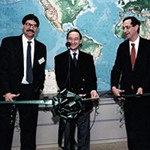 2000: INSTITUTE FOR GLOBAL LEGAL STUDIES IS FOUNDED
2000: INSTITUTE FOR GLOBAL LEGAL STUDIES IS FOUNDED
Under the direction of Professor Stephen Legomsky, the Institute for Global Legal Studies opens to foster collaboration, continuous dialogue, and exchange among scholars and practitioners engaged in international or comparative law work. In 2002, it is renamed the Whitney R. Harris World Law Institute in honor of Whitney Harris, who served as a prosecutor of German war criminals at Nuremberg. Today, headed by Professor John Drobak, the Harris Institute has hosted more than 100 speakers and presented dozens of conferences.
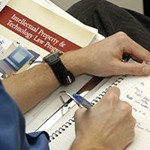 2001: PROGRAM IN INTELLECTUAL PROPERTY & TECHNOLOGY LAW ADDED
2001: PROGRAM IN INTELLECTUAL PROPERTY & TECHNOLOGY LAW ADDED
Beginning in the fall 2001 semester, the School of Law offers a new program in Intellectual Property & Technology Law, drawing on the university’s expertise in medicine, biotechnology, and science to prepare students for careers in fields like patent prosecution, trademark law, intellectual property litigation, and health care law.
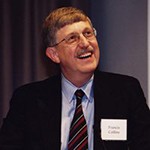 2002: SCHOOLS OF LAW AND MEDICINE PRESENT HUMAN GENOME CONFERENCE
2002: SCHOOLS OF LAW AND MEDICINE PRESENT HUMAN GENOME CONFERENCE
Subtitled “Expanding the Conversation,” the two-day Human Genome Project conference includes the president of the American Law Institute, political theorists, an authority on race and culture, and a historian of technology discussing genome mapping. Francis Collins (pictured), director of the National Human Genome Research Institute at the National Institutes of Health, delivers the keynote address.
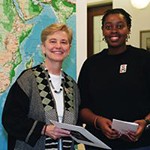 2002: GLOBAL PUBLIC INTEREST LAW INITIATIVE BEGINS
2002: GLOBAL PUBLIC INTEREST LAW INITIATIVE BEGINS
Coordinated by Professors Karen Tokarz and Leila Sadat, Global Public Interest Law Internships aim to advance human rights, conflict resolution, and access to justice in Africa, China, India, Thailand, Cambodia, Chile, Panama, Brazil, Italy, and The Hague. Through the program, more than 200 law students have worked on public interest projects abroad.
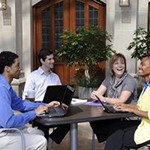 2004: NEGOTIATION & DISPUTE RESOLUTION (NDR) PROGRAM INTRODUCED
2004: NEGOTIATION & DISPUTE RESOLUTION (NDR) PROGRAM INTRODUCED
The School of Law aunches this innovative Negotiation & Dispute Resolution (NDR) Program, preparing lawyers who are well-versed in negotiation, problem-solving, collaboration, and creative dispute resolution. It eventually includes a required first-year course in Negotiation, numerous upper-level classes, and a Master of Laws (LLM) with a concentration in NDR.
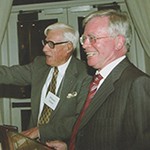 2006: HARRIS INSTITUTE BESTOWS FIRST WORLD PEACE THROUGH LAW AWARD
2006: HARRIS INSTITUTE BESTOWS FIRST WORLD PEACE THROUGH LAW AWARD
The Whitney R. Harris Institute for Global Legal Studies presents the inaugural World Peace Through Law Award to the Honorable Philippe Kirsch, (pictured with Whitney Harris), commemorating the judgment of the International Military Tribunal at Nuremberg, Germany, on October 1, 1946. Subsequent awardees are the Honorable Richard Goldstone, Professor M. Cherif Bassiouni, ICC Prosecutor Fatou Bensouda, His Excellency Sir Christopher Greenwood, and former Nuremberg Prosecutor Benjamin B. Ferencz.
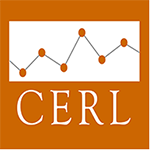 2007: CENTER FOR EMPIRICAL RESEARCH ESTABLISHED
2007: CENTER FOR EMPIRICAL RESEARCH ESTABLISHED
The Center for Empirical Research in the Law (CERL) opens with two goals: to promote and support research relating to law and legal institutions; and to design products that enhance research and teaching about the law and legal institutions. Known for its innovative projects, including the Supreme Court Database, CERL is co-directed by Professors Lee Epstein and Pauline Kim.
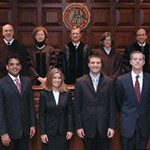 2007: SUPREME COURT CHIEF JUSTICE ROBERTS VISITS THE LAW SCHOOL
2007: SUPREME COURT CHIEF JUSTICE ROBERTS VISITS THE LAW SCHOOL
Supreme Court Chief Justice John G. Roberts, Jr. heads the panel of judges presiding over the finals of the School of Law’s Wiley Rutledge Moot Court Competition. The students’ problem was based on the criminal appeal of a fictional contest winner’s boyfriend, who allegedly threatened a celebrity. The panel of judges names second-year law students Samir Kaushik and Renee Waters as finalist champions.
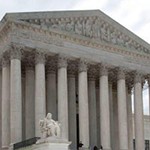 2008: SUPREME COURT DATABASE MODERNIZED
2008: SUPREME COURT DATABASE MODERNIZED
Through a multi-university collaborative project, the Center for Empirical Research in the Law began to preserve and modernize a repository of U.S. Supreme Court records originally created by Michigan State Professor Harold Spaeth, and expanded by Washington University Professor Lee Epstein. Today, this sophisticated research database contains more than 200 pieces of information about each case decided by the court between the 1791 and 2015.
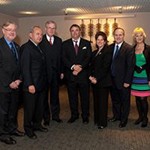 2008: CRIMES AGAINST HUMANITY INITIATIVE LAUNCHED
2008: CRIMES AGAINST HUMANITY INITIATIVE LAUNCHED
Spearheaded by Professor Leila Sadat, the Crimes Against Humanity Initiative is launched to study the need for a comprehensive convention on the prevention and punishment of crimes against humanity, analyze the necessary elements of such a convention, and draft a proposed treaty. The Initiative is directed by a seven member steering committee composed of Sadat, Professor M. Cherif Bassiouni, Ambassador Hans Corell, Justice Richard Goldstone, Professor Juan Méndez, Professor William Schabas, and Judge Christine Van den Wyngaert.
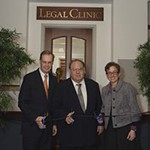 2009: NEW CLINIC SPACE DEDICATED
2009: NEW CLINIC SPACE DEDICATED
To provide high-quality legal services to the community in a professional environment, the School of Law dedicates a renovated space in A-B Hall for in-house clinics. Today, five of the 18 clinics offered through the School of Law are housed here.
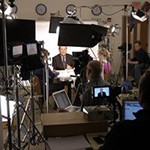 2013: @WASHULAW ONLINE LLM OFFERED
2013: @WASHULAW ONLINE LLM OFFERED
An innovative program called @WashULaw welcomes its inaugural online class of 10 international LLM students. The online degree option is designed for international attorneys interested in increasing their knowledge of U.S. law to more effectively practice in today’s global marketplace. Today, the online program also offers a Dual LLM Degree with Tecnológico de Monterrey and a Master of Legal Studies degree for non-lawyers.
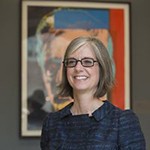 2014: NANCY STAUDT IS NAMED DEAN
2014: NANCY STAUDT IS NAMED DEAN
Nancy Staudt, the Howard and Caroline Cayne Professor of Law, is named Dean of the School of Law. The law school’s first woman dean, she is a nationally renowned scholar in tax, tax policy and empirical legal studies. Staudt served as Vice Dean for faculty and academic affairs at the University of Southern California Gould School of Law and was a member of the Washington University Law faculty from 2000 to 2006.
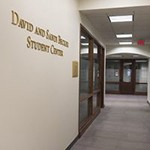 2015: NEW JOURNAL SUITE CREATED
2015: NEW JOURNAL SUITE CREATED
Staff from the four student journals move from Seigle Hall to an expanded space in A-B Hall. Part of the Becker Student Center, the suite is home to the Washington University Law Review, Washington University Journal of Law & Policy, Washington University Global Studies Law Review, and the Washington University Jurisprudence Review.
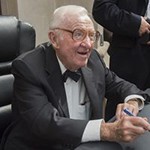 2016: FORMER SUPREME COURT JUSTICE STEVENS SPEAKS
2016: FORMER SUPREME COURT JUSTICE STEVENS SPEAKS
U.S. Supreme Court Justice John Paul Stevens speaks to a capacity crowd in Graham Chapel. In addition to offering reflections on his landmark judicial opinions, Stevens responds to questions with grace, wit, and insight. In answer to a final question on his legacy, Stevens modestly remarks, “I did the best I could.”
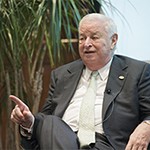 2016: AMBASSADOR SUSMAN VISITS SCHOOL
2016: AMBASSADOR SUSMAN VISITS SCHOOL
Alumnus and H.E. Ambassador Louis Susman, JD ’62, the U.S. Ambassador to the United Kingdom, returns to the School of Law to teach a class, called “The Lawyer as Statesman.” He also speaks at a fireside chat hosted by Dean Nancy Staudt. Susman also lectured at the law school on previous occasions, including as part of the Harris Institute’s lecture series.
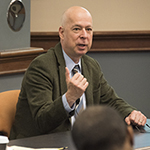 2016: NEW YORK TIMES SCOTUS CORRESPONDENT ADAM LIPTAK TEACHES COURSE
2016: NEW YORK TIMES SCOTUS CORRESPONDENT ADAM LIPTAK TEACHES COURSE
Professor Lee Epstein and Adam Liptak, the U.S. Supreme Court correspondent for The New York Times, co-teach a weekend course titled “The Roberts Court.” At the end of the course, Liptak is called back to the Times to cover the sudden death of Supreme Court Justice Antonin Scalia.
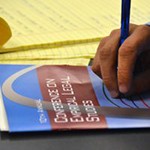 2016: CERL CO-HOSTS EMPIRICAL LEGAL STUDIES CONFERENCE
2016: CERL CO-HOSTS EMPIRICAL LEGAL STUDIES CONFERENCE
WashULaw’s Center for Empirical Research in the Law and Olin Business School host the 10th Annual Conference on Empirical Legal Studies (CELS). Organized by Professor Pauline Kim and sponsored by the Society for Empirical Legal Studies, CELS is a highly-regarded interdisciplinary gathering that draws researchers from across the country and world. Scholars in law, economics, political science, psychology, policy analysis, and others present papers on the empirical analysis of law and legal institutions.
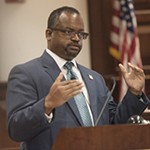 2016: JUDGE WILKINS LECTURES ON ‘LONG ROAD TO HARD TRUTH’
2016: JUDGE WILKINS LECTURES ON ‘LONG ROAD TO HARD TRUTH’
Judge Robert L. Wilkins, U.S. Court of Appeals for the District of Columbia Circuit, gives the Tyrrell Williams Lecture in which he discusses the many challenges behind the National Museum of African American History and Culture. The talk drew heavily from his new book, “Long Road to Hard Truth: The 100-Year Mission to Create the National Museum of African American History and Culture.”
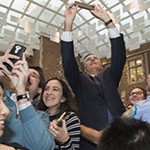 2017: MITT ROMNEY VISITS WASHULAW
2017: MITT ROMNEY VISITS WASHULAW
Former Governor of Massachusetts and Republican presidential candidate Mitt Romney participates in a fireside chat at Graham Chapel. He then attended a reception in Crowder Courtyard, where he posed for selfies with students. “If you get a chance to run for president, do it,” he said. “It’s a great experience. Or run for city council or the school board. If the window opens, jump through … always keep an eye open if you’re needed to serve.”
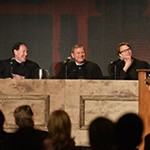 2017: CHIEF JUSTICE JOHN ROBERTS HEARS “THE CASE OF TOM SAWYER”
2017: CHIEF JUSTICE JOHN ROBERTS HEARS “THE CASE OF TOM SAWYER”
Chief Justice John G. Roberts Jr. (center) presides over the “The Case of Tom Sawyer” with Judges Raymond Gruender, BSBA ’84, MBA ’87, JD ’87, and Nina Pillard as part of WashULaw’s 150th Anniversary Celebration.
2019: WASHULAW CELEBRATES 150 YEARS OF ADMITTING WOMEN
WashULaw accepted its first female students, Phoebe Couzins and Lemma Barkeloo, in 1869. To honor 150 years of admitting women, the School of Law hosted a year-long celebration of women. Led by Professor Rebecca Hollander-Blumoff, the “Year of the Woman” included a special speaker series, banners across campus, small group meetings, and more.
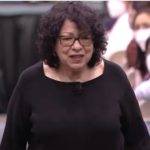
2022: U.S. SUPREME COURT JUSTICE SONIA SOTOMAYOR VISITS WASHULAW
Supreme Court Associate Justice Sonia Sotomayor comes to WashULaw for a special visit, prior to a university-wide event. She spoke with a small group of law students, faculty, staff, and alumni at a School of Law fireside chat, where she discussed the importance of clerking, her camaraderie with fellow justices, and more.